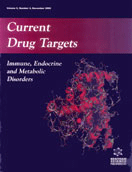Abstract
The literature has seen an incredible booming of publications related to the use of adenovirus-mediated gene therapy in cancer over the past decade. The use of recombinant adenoviruses as a therapeutic tool for lymphoproliferative disorders has also been evaluated in this context. Several approaches of adenovirusmediated gene expression have been used to transfect cell lines that are derived from lymphoid tumors and would have otherwise been refractory to other transfection methods. The identification of high affinity receptor for human adenoviruses serotype 2 and 5, the coxsackie-adenovirus receptor (CAR), has raised the question about its relevance for the efficacy of recombinant adenovirus-mediated gene therapy. We have reviewed the published studies that have examined the use of recombinant adenovirus vectors expressing cytotoxic genes for gene therapy in lymphomas, chronic lymphocytic leukemia and multiple myeloma. Based on the concept that a recombinant adenovirus particle behaves like a drug, we address the issue of adenovirus-mediated gene therapy in terms of classic pharmacodynamics. We have analyzed the use of recombinant adenovirus-mediated cytotoxicity by assessing the importance of the biochemical and physiological signaling pathways interacting with these particular drugs and their mechanisms of action. The case of anaplastic large cell lymphoma is discussed as an example that better illustrates the concept of pharmacodynamics of recombinant adenoviral-mediated expression of cytotoxic genes. Ultimately, the issues derived from the use of such a modality of therapy that require further evaluation, are discussed in this review.
Keywords: lymphoproliferative disorder, cytotoxic gene therapy, adenovirus, recombinant adenovirus, car, coxsacrie-adenovirus
 1
1


















